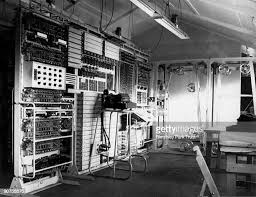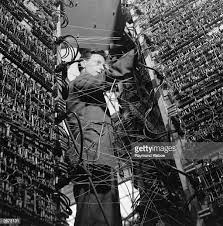Shaping the Modern Computer
The computer, an indispensable tool in our modern lives, owes its existence to the brilliance and perseverance of several visionary minds. From conceptualizing the idea of a programmable machine to developing the groundbreaking technologies that power today's computers, these pioneers laid the foundation for the digital revolution that continues to shape the world. Let's delve into the lives and contributions of the founder of the computer and some key developers who brought their dreams to life and pushed the boundaries of technology.
Charles Babbage - The Father of the Computer
Born in 1791, Charles Babbage was an English mathematician, philosopher, and inventor, widely regarded as the "Father of the Computer." During the early 19th century, Babbage conceived the idea of a "Difference Engine," a mechanical calculator designed to perform complex mathematical calculations automatically. Although the Difference Engine was never fully completed during his lifetime, his pioneering work laid the groundwork for future computing machines.
Babbage's most significant contribution, however, came with his concept of the "Analytical Engine," a general-purpose computing device. This groundbreaking idea featured an arithmetic logic unit (ALU), memory, and a control flow, foreshadowing the basic architecture of modern computers. Collaborating closely with Babbage, Ada Lovelace, a mathematician, and writer, wrote the first algorithm intended to be processed by a machine, making her the world's first computer programmer.
Alan Turing - The Enigma Codebreaker
In the 20th century, Alan Turing emerged as one of the most influential figures in computer history. Born as a British mathematician, logician, and computer scientist, Turing played a pivotal role during World War II in breaking the German Enigma code, significantly shortening the war and saving countless lives.
Turing's groundbreaking work continued post-war when he developed the concept of a theoretical computing machine, now known as the "Turing Machine." This abstract model laid the foundation for the theory of computation and computability, shaping the understanding of what computers could achieve mathematically.
Developers of the First Electronic Computers
In the 1940s, a group of brilliant engineers and scientists turned theoretical concepts into reality by building the world's first electronic computers.
John Mauchly and J. Presper Eckert - ENIAC
In 1946, Mauchly and Eckert developed the Electronic Numerical Integrator and Computer (ENIAC), considered the world's first general-purpose electronic computer. ENIAC was a massive machine, using vacuum tubes and punched cards to perform complex calculations, and it marked the dawn of electronic computing.
Alan M. Turing and Max Newman - Manchester Mark 1
Max Newman
In 1945, Turing joined forces with Newman to create the Manchester Mark 1, a stored-program computer that introduced the concept of using memory to store both data and instructions. This innovation became a fundamental principle of modern computing.
Konrad Zuse - Z1, Z2, and Z3 Computers
In Germany during the 1930s and 1940s, Konrad Zuse independently developed the Z1, Z2, and Z3 computers, some of the earliest programmable machines based on binary digital principles.
Legacy and Impact
The legacy of these pioneers continues to inspire generations of innovators, driving progress in the ever-evolving realm of computer technology. Their visionary ideas and groundbreaking inventions laid the groundwork for the computers we use today, empowering us to connect, learn, and create on an unprecedented scale.
Shaping the Future
The pioneers of computing, led by Charles Babbage and Alan Turing, along with the first developers of electronic computers, changed the course of history by giving birth to the modern computer age. Their relentless pursuit of knowledge and technological advancements set the wheels of progress in motion, revolutionizing the way we live, work, and communicate. As technology continues to advance, their contributions stand as a testament to the incredible power of human ingenuity, and their vision will undoubtedly shape the future of computing for generations to come.










.jpeg)





.jpeg)




.jpg)









